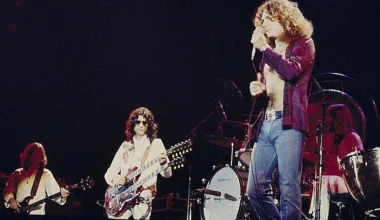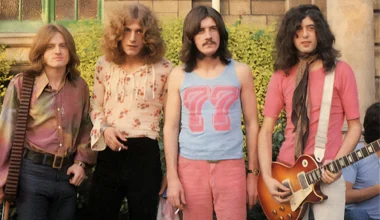Way back in the early days of the British invasion’s imminent American pop conquest, The Rolling Stones’ manager, Andrew Loog Oldham, was faced with a marketing conundrum.
Merseybeat’s rising stars, The Beatles, sailed to the top of the charts off the strength of their uniquely fresh songcraft and tight musicianship. However, it was an immaculately manufactured presentation courtesy of Brian Epstein’s keen marketing eye, which shaped the Fab Four as the perfect poster boy package. High-end tailored suits and emerging mop-top haircuts countered an infinitely more palatable and presentable group than Oldham’s stubbornly unpolished London blues outfit.
Sensing the countercultural winds faintly signalling the swinging era to come, Oldham turned his publicity dilemma into an essential asset. Let the Beatles be seen as the nice boys from Liverpool, The Rolling Stones, in contrast, would be heralded as the south-east ruffians spouting raw and rebellious rock, destined to wind up mum and dad, “Would you let your daughter marry a Rolling Stone?” Oldham would push for their promotion at the time. For years after, the perception was cemented of The Rolling Stones standing as the UK’s premier bad boys.
Heroin, debauchery, and Altamont disasters would plunge the band into dark reputations by the decade’s close, but their infancy was a different story. Founding guitarist Brian Jones was a philandering dandy from the South-West who enjoyed middle-class security in pursuing his blues ambitions, and frontman Mick Jagger was a student at the London School of Economics before the rock gig pulled him away from academia. Indeed, very early press shots show The Rolling Stones in matching suits as informed by The Beatles’ media curation.
Long before EMI signings and Epstein’s direction, The Beatles were pill-popping greasers donned in leather jackets and jeans playing the seedy clubs and bars of Hamburg’s Red Light District. Far from the clean-cut image and end-of-set bows that would endure during Beatlemania, the quartet would smoke on stage, swear at the audience, and generally revel in loutish antics. Beatles lore has it that Paul McCartney was more than happy to follow Epstein’s managerial lead, while the ever-dissenting and belligerent John Lennon stepped into the iconic Mohair suits with gnawing resentment.

Whatever the truth, it’s a perception of The Beatles’ principal songwriters that cemented itself in the eyes of their fans. Ian Anderson was no exception. While a guarded admirer of the band, the Jethro Tull flautist spoke candidly of his natural fascination with Lennon and the background he felt he came from.
“When I was a schoolboy, I was always attracted to John Lennon above the others, by a long way,” Anderson told Classic Rock in 2021. “Paul McCartney seemed to be the cheerful, cherubic, slightly wet character in the line-up as if the band had had a Cliff Richard transplant,” he added, “But John had attitude, a sense of disdain when it came to being groomed and made to dress in matching suits.”
Much has been made of Lennon’s supposedly dragged-up formative years. The ‘Working Class Hero’ singer’s childhood carried a great deal of loss and trauma, forging the complex wavering between domestic abuser and utopian revolutionary that would take hold in his adult life. Yet, the years spent with his Aunt Mimi brought a level of material security unknown to the other Beatles, living in the leafy Woolton suburb in her semi-detached house, complete with a large garden. Later in 1995’s Anthology series for ITV, McCartney confessed to not remembering any significant protest from Lennon in swapping leather for suits at the cusp of their fame.
Lennon radiated provocation in The Beatles’ group dynamic, however. From implicitly telling the Queen Mother to “rattle your jewellery” at their 1963 Royal Command Performance to triggering uproar in the US ‘Bible Belt’ with his “bigger than Jesus” quip, Lennon effortlessly garnered fascination with an unruly energy that could bristle against Epstein’s carefully controlled managerial style.
Possessed with an acidic edge in The Beatles’ songbook, Lennon’s lyrical cynicism and combative personality served as an essential component of the Fab Four’s unique musical and cultural alchemy, which influenced scores of young artists who sought to embrace pop without abandoning their values or convictions.






